#queer history I guess
Text
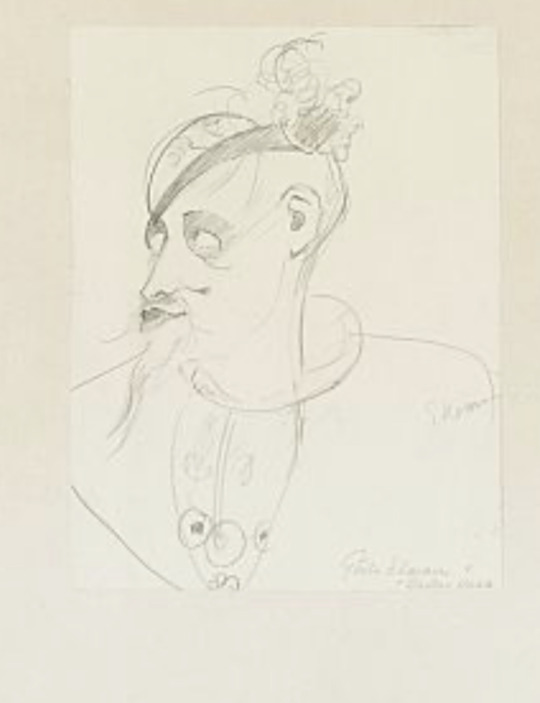
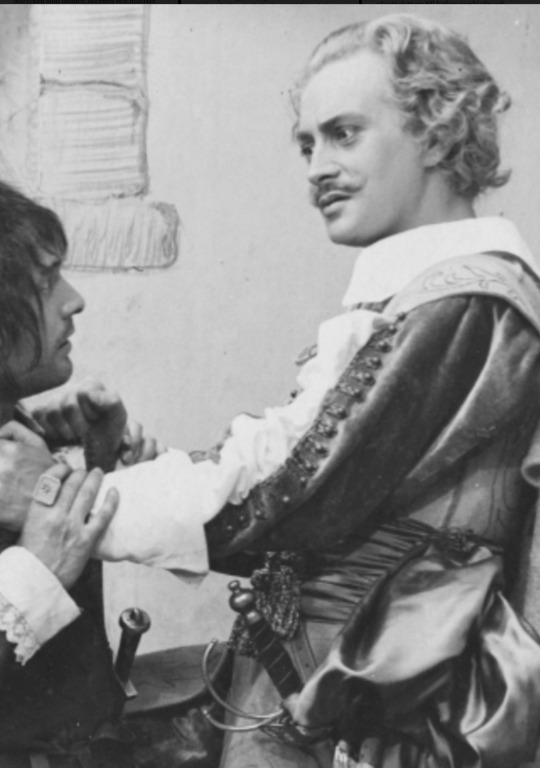
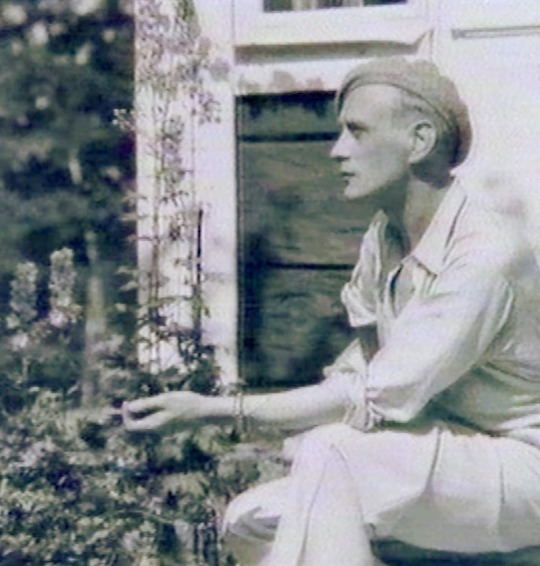
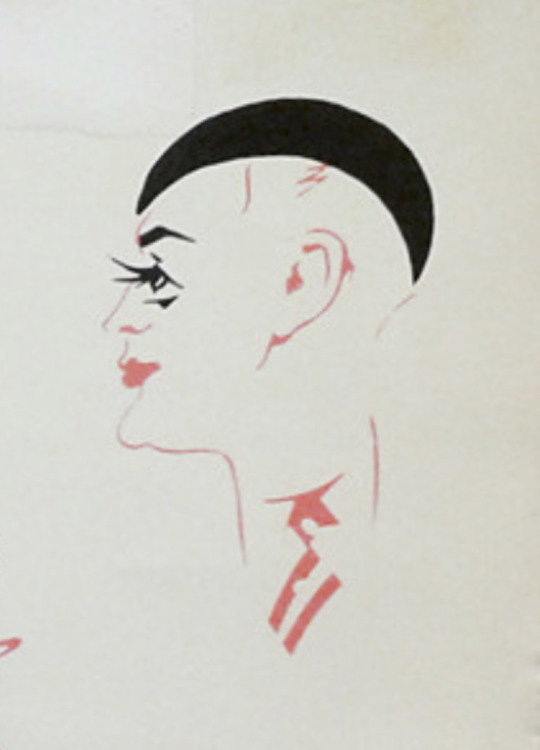

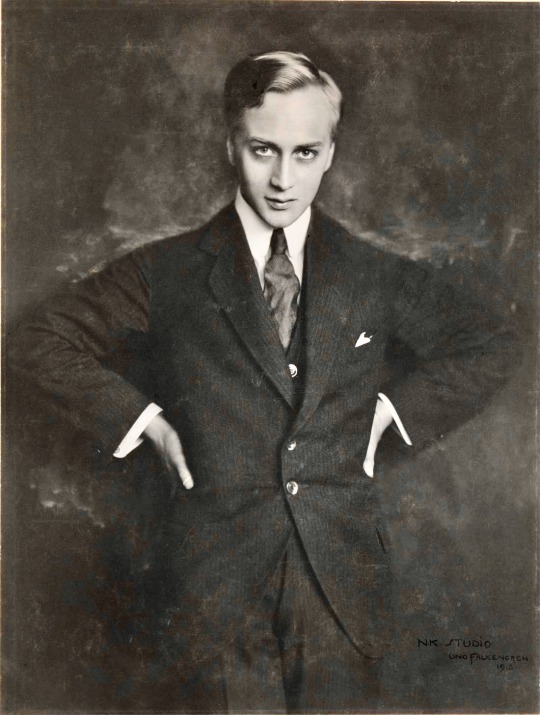
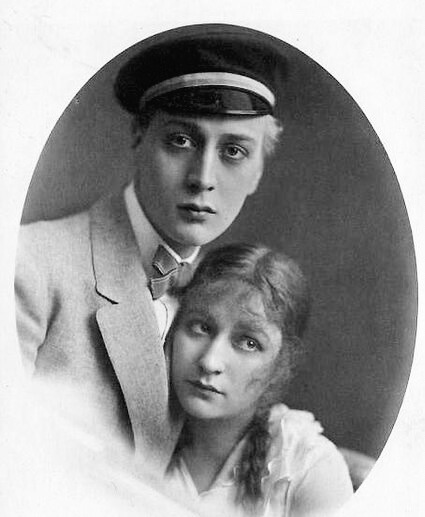
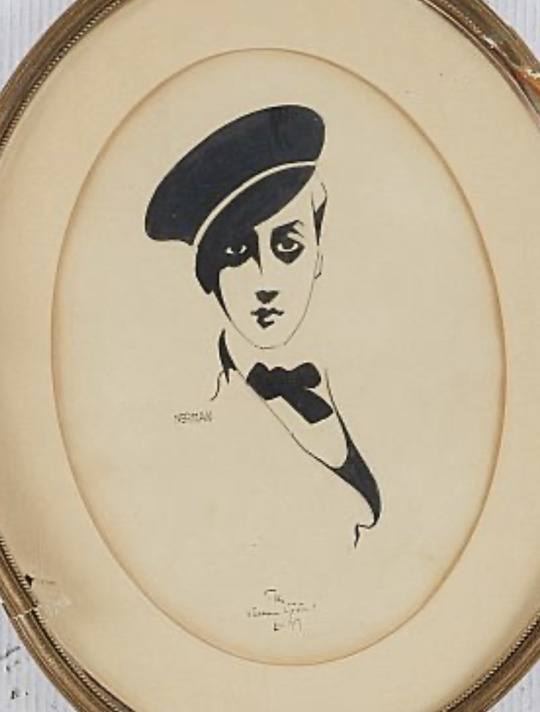
Thinking about how the very bisexual Gösta Ekman got portrayed by the very bisexual Einar Nerman
#y’know#‘’they were so infatuated by each other that the considered living together’’#or something along those lines#gösta ekman#einar nerman#1910s#1920s#queer history I guess
6 notes
·
View notes
Text
every time queer discourse surges on this site everyone is so quick to jump to “it was actually the evil lesbians who divided us” because y’all heard the term “political lesbian” and never bothered to figure out what that meant
#‘political lesbians’ were and are predominantly STRAIGHT WOMEN#and a good chunk are bi#what don’t you understand about these women thinking lesbianism is a CHOICE? that it’s only used by women as a reaction to the patriarchy?#like lesbians can’t possibly like women and not men for any reason that isn’t some deep-seated hatred for men?#they all think lesbianism is dirty and impure and here you people are saying that this is PROGRESSIVE#and that they actually think that lesbianism is some golden standard for its purity???? you guys are so fucking stupid oh my god#you go on and on about learning your queer history until it comes to lesbians and then you’re perfectly happy rewriting our culture#and narrative#wtf is wrong with you people#and y’all braindead mfs use this to act like men are actually oppressed by the meanie dykes#i hate y’all#but none of y’all actually give a shit about lesbians so i guess im yelling into a void#lesbophobia#top posts#neon talks#LOL at the fucking idiot who reblogged this and tagged it ‘misandry’ not sure how you got that from my post but i hope your day sucks <3
3K notes
·
View notes
Text
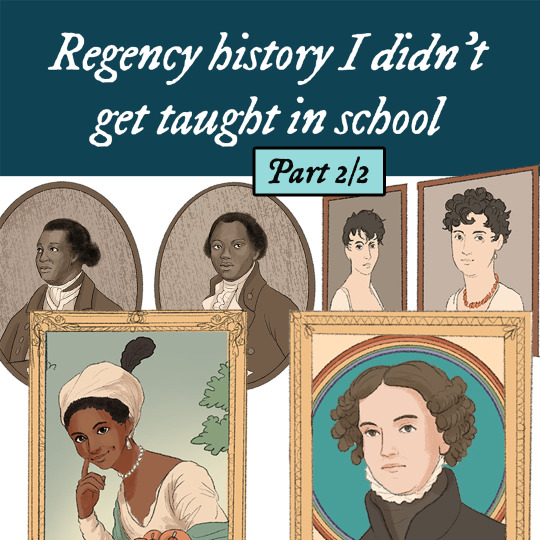
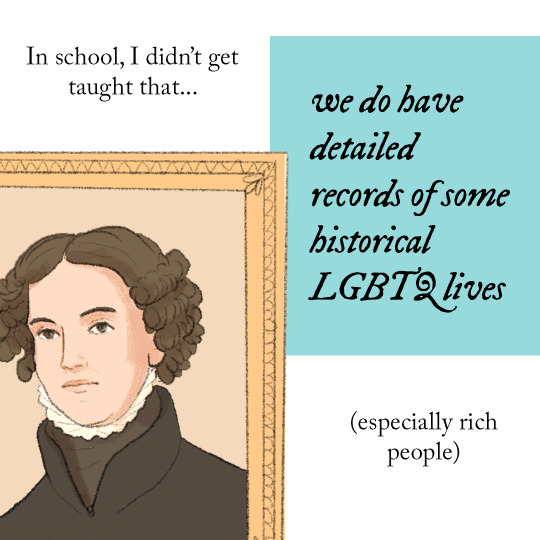
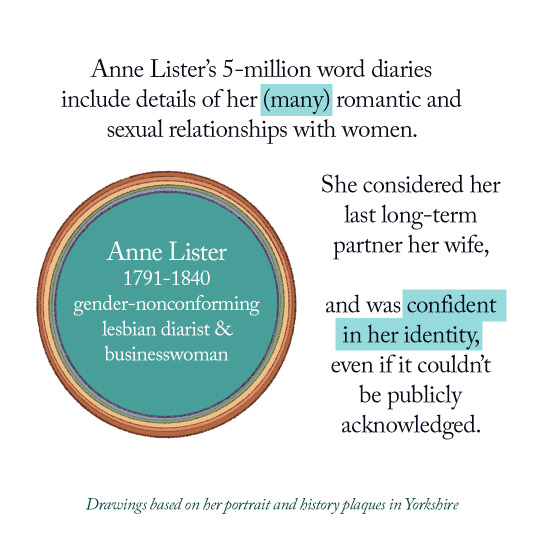
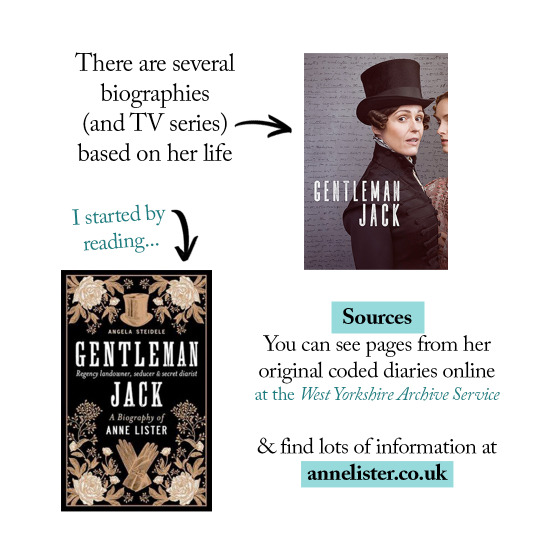
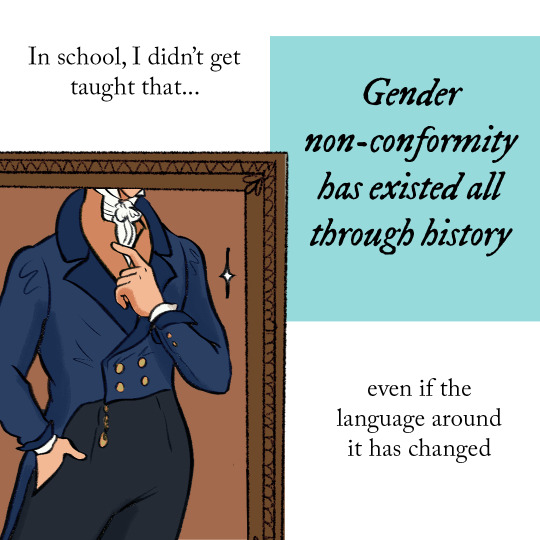
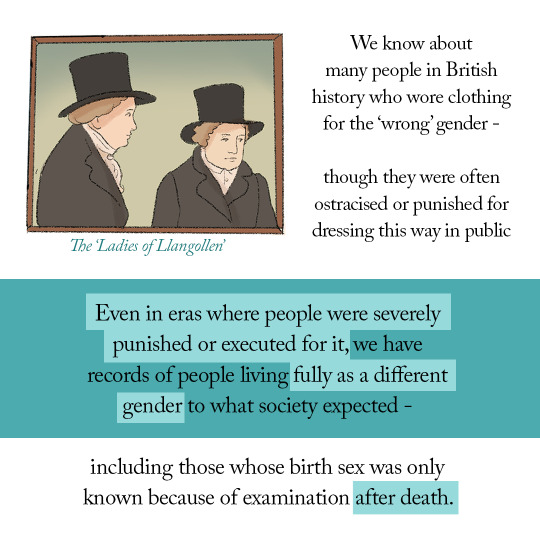
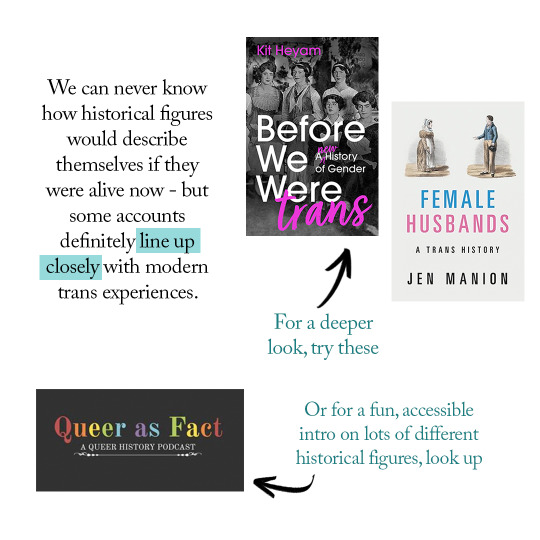
Excuse the format (I made this for instagram since that's what the publisher wants, rip) but this is basically a shorter, easy-to-read version of the history section at the back of my new book.
(Part 1 || The book)
More about my relationship with queer history (& section 28) under the cut
Looking up history to make a fun queer historical rom-com opened my eyes to how my entire idea of the past in this country was way off.
It also made me realise that part of the reason queer history felt like such new, revelatory information was a law that banned it, which was still in place when I was at school.
Section 28 was put in place by Margaret Thatcher in the 80s, banning "promotion of homosexuality" in UK schools and local authorities. Local libraries were forbidden from stocking anything with LGBT content, and it effectively stopped teachers mentioning any queer history, leaving them scared to even accidentally mention a same-sex partner.
-
just want to add a quote from that article:

legends.
-
Although the law was finally repealed in the 00s, it cast a long shadow. Older teachers were used to it, history books conformed to it, and new teachers still feared homophobic backlash.
Today there's a huge and disturbing rise in anti-trans rhetoric and legislation being attempted in schools and beyond, and it mirrors the homophobic conversations of the 80s. The truth that we've always been here gets met with vitriol - and to be honest, also just outright surprise even by well-intentioned, otherwise widely-read cis and straight people I know, especially in older generations.
I feel like there's also the flipside: once I listened to a podcast where two american women, older than me, were both SHOCKED that anyone was ever executed in Britain for being gay?? For me the threat of execution (before 1824), exile or imprisonment (the two years of hard labour that famously lead to the death of Oscar Wilde) were the main, only things I grew up aware of about queer history.
At best, the queer history I saw growing up was absolute tragedy. Part of what was such a revelation when researching was reading historical accounts that hint at hidden queer histories, secret joys and long, complex lives.
So by the time I finished researching my historical romance book, I'd decided to make an illustrated history section at the back too - these pics are a mini version.
I wish more people knew about the real history we have and how far back it goes - I hope someone unfamiliar might be able to get get a tiny introduction, and recs for ways to get a clearer view of our past.
#QUEER HISTORY#isnfil#it was a black sails podcast lol. i remember thinking 'oh some people live in another universe huh'#growing up w evelyn waugh adaptations and thinking 'welp guess that's how the queer past always was'#anne lister got AROUND. reading biographies was lifechanging#she was also a raging tory and its quite interesting to see her fucked up views on events of the times. anyway#wait i'm going to make a tag for this#hari's history corner
298 notes
·
View notes
Text
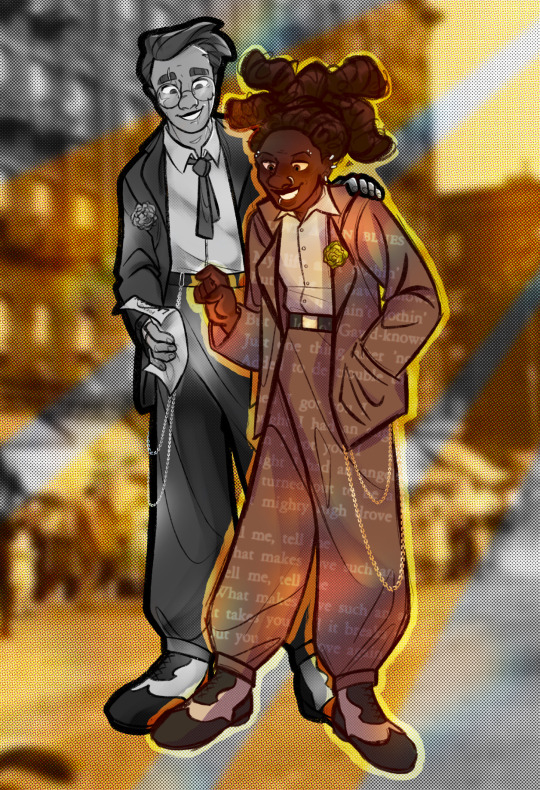
finally my obsession with zoot suits becomes useful
#spider man: across the spider verse#spider punk#spider noir#hobie brown#noirpunk#DO YOU GUYS KNOW ABOUT ZOOT SUITS#they’re fascinating the history is just. ouujhghghghhh i love it#not to mention the silhouette??? the chain???? fuck yeah#plus… green carnation… wink wink#green carnations as a subtle queer symbol also fell out of use round the 20s i think but i like it so#also zoot suits are technically a late 30s/40s thing if i remember right but leT ME HAVE THIS#theyre going on a date to a langston hughes reading <333#yknow how every spidey seems to have a borough?? like miles has brooklyn and gwen has chelsea#well. noir has harlem#IMAGINE IT. NOIR RIGHT IN THE THICK OF THE HARLEM RENAISSANCE#I NEED IT TO BE REAL#im so happy i get to incorporate my interest in the roarin 20s#into this magnificent ship. fucking fantastic for me#poem on hobie is love again blues by literally guess
583 notes
·
View notes
Text
So I wonder what other people think about this, but I do not find using they/them for historical figures of ambiguous modern gender identity respectful. I vastly prefer to use the pronouns they used in life, because gender is extremely contextual to a person’s specific society
I guess I can understand for figures like the Public Universal Friend, but I still won’t use they/them for the Friend, because the Friend did not use those pronouns in life. The Friend preferred no pronouns at all, actually, though some of the Friend’s followers referred to the Friend with he/him (because that was considered neutral back then)
(also sometimes there are people that researchers and commentators claim ambiguity for that I really don’t understand. [cough]ChevaliereD’Eon[cough])
EDIT: I feel like sexuality is somewhat different, though, as long as you make it clear that this is not a term they would have use themselves. Same with gender terminology that’s not pronouns. Like. You can fit the technical definition of gay or trans or non-binary without using the term for yourself, but the only way to fit the definition of “a person with [X] pronouns“ is to claim those pronouns. If that makes sense. I still think it’s important to talk about how we may not know what identity someone would have ascribed to if they lived today, in terms of gender, if that’s the case, to be clear
#history#queer history#lgbt history#girl really got the French king to officially declare her cis#and now people in the present day are here like ‘ Gee I wonder what THEIR gender was?!?!’#‘ I guess we’ll never know!!!‘
211 notes
·
View notes
Text

oh to be in a deeply satisfying domestic situation
54 notes
·
View notes
Text

Artist's Statement (AKA Just Because I Like Characters That Make Your White Guilt Flare Up Does Not Mean I'm Less Black)
#comic#original art#decodium#2024#with it being black history month i guess this was on my mind... less a statement about fandom and more my art in general tbh#i am black! everything i make is influenced by this inherently!#perhaps even moreso than being queer
106 notes
·
View notes
Text
Anyways speaking of being gay apparently teenagers on tiktok are mad at me because they found out I’m a lesbian who uses he/they pronouns
#txt#there’s something funny about telling a nb lesbian that their identity is ‘terminally online’ while regurgitating talking points#from 2015 transmed tumblr#like first it’s Pearl clutching over masculine women and feminine men and now it’s non-binary lesbians making people go berserk#honestly I wish I could find this funny (I mean in concept it is) but it’s irritating how tiktok incited so much online harassment and#bullying by just making shit up about queer identities and terminology to a point where we’re just back to acting like we have to fit into#our stereotypes. but only the accepted ones because god forbid your lesbian character is masculine lol#I remember a bunch of 15 year olds on twitter blew up at me because I pointed out that dyke is not a term exclusive to black lesbians#because guess where they got that insane ass assumption that ignores decades of lesbian history and queer activism#that’s right! another random ass teenager on tiktok with no sourcing#just gatekeeping a slur meant for all lesbians#I feel like if a tiktoker interacted with a real butch lesbian they’d explode and die
695 notes
·
View notes
Text

Ive been studying for an exam all day so I treated myself to smth incredibly self indulgent. Grins
#my art#artists on tumblr#Oc#Suggestive#nsft art#Oc: azura#Body reference was used heavily so this counts as an anatomy study i guess#Nsft#Learns about roman history all day and has to cope by drawing sweaty nonbinary mechanic#queer nsft
56 notes
·
View notes
Text
i would say one of the most neurodivergent moments in my life was in 7th grade history when we were taking a little quiz on Ancient Greece and an extra credit question our teacher gave us was 'Name 3 Greek gods'
and boi let me tell you
I took that instruction and ran with it and kept listing Greek gods until i had filled up the whole back space and we ran out of time in class. There was honestly like 30 names or something that i had listed. I was so excited for that test and that segment in our curriculum because i could finally talk about my hyperfixation and use it to get a good grade, like it was easy as fuck.
and then later i had found out that my teacher had came up to my mom one day and told her that i had listed some gods that even he didn't know about.
obviously i got the extra credit and the vindication was worth it
#ancient greece#give you one guess what book series got me started on my hyperfixation#also obviously im queer now#duh#i know this might read like one of those fake internet stories people lie about for notes#but my dudes i can't emphasize how feral i was about ancient greek history and mythology like i read the Odyssey UNABRIDGED#for FUNSIES#and that shit is LONG i got no clue how poets back then memorized the whole thing like goddamn#anyway just a little story about me#neurodivergency#adhd#autism
77 notes
·
View notes
Text
i need to mutter into the void so i’m going to post under the cut the trials and tribs of my current clegan fic writing experience so no one including (especially) me has to make eye contact with it. it’s basically a diary entry. god bless anyone that reads it lol. love and light 🫶
goddamn writing this fic is kicking my ass. it was just meant to be an angsty gale introspective. then i started another and that was meant to be them just fucking absolute nasty style. now i fear they have combined, morphed, metamorphosed, and it’s becoming a monster. goddamn. what does one do in this situation? it would be my first time posting in this fandom and my second time posting fic at all. i’m shaking in my boots about it. there is so much wonderful fic being posted for this pairing and so many approaches and styles. i would love to get mine out and see it amongst those works. i’m just not sure how to go about constructing this fic and how to post about it. i’d like to post some bits and pieces and maybe someone will see it and tell me it’s worth it to finish it but first and foremost i’m really writing this for myself, because it’s the type of fic i love to read and also i feel like i need to be writing it so my mind is creating something. and it would feel like a waste to me and a let down for myself if i never post it. also i’m projecting very hard onto it and onto gale as a character, so it feels kind of personal in some parts? which can’t totally be avoided but because of that and because the way i write is also very personal to me it’s making something that should be fun to post about feel quite daunting. but i want to push myself so badly because it’s been years since i’ve done that, maybe i’ve never done that. and Of Course it’s wwii yaoi that’s gotten me to this point.
anyway, y’all ever think about gale identifying as a more feminine being than is expected for a man like him in the time he’s in, thus manifesting itself into years of repression he’s not entirely aware of until he meets and grows closer to bucky, and how he comes to terms with being awakened in such a way that has laid dormant until he’s in the literal u.s. military, and eventually in one of the least survivable theatres of the war, and in suffocating proximity day in and day out with one john bucky egan? and how he navigates his bond with marge, now in contrast to how he feels for john? and how even his childhood and the lives of his parents is being pushed forwards in his consciousness in relation to his sense of self and his place in the lives of others? oh and also how absolutely Biblically he wants john, in the most unconventional and all encompassing ways? all while he has no context for queerness and sexuality as it relates to himself? i dunno what freak would be into writing or reading that 👀 🚬💀
#like how the fuck am i gonna pull this? with my fic writing history? i’ve really done it now.#it’s gales pov which i Did Not see coming. i’m a bucky girl. he bewitches me. but gale… gale….#so here i am#up to my neck in the gale and marge of it all and gale’s identity and sexuality and how that fits into canon in a way that i can stay#as true as possible to the show because it really does already almost have it all#and i love gale as a character so i would hate to twist that out of shape#just for the sake of some down and dirty queer lust and feminisation kink#but i know what the fuck i want#and that is for gale to ride john into the damn ground#also my writing style appears to be built kinda different and there’s nothing i can seem to do about it so it’s all very… very? prose-y?#god this is too many tags. i don’t know what i’m doing.#if you’re reading this i’m sorry 🫶#how do i even tag this?? do i even want to tag this lmao#clegan#clegan fic#forgets fic#?? i guess that will do so i can find this post later and kill it with fire
24 notes
·
View notes
Text
Watching the AO3 top ship finals go down (here it is), and the amount of people talking about how the mlm ship (not naming it, in case I get dragged for having an opinion) deserves to win because it’s a part of Tumblr history is just… ridiculous.
Like, that is absolutely correct, but why exactly did it become a part of Tumblr history? Why has Tumblr had an obsession with non-canon (this particular ship is canon, though, but it seemed like a last minute decision from the writers) mlm ships, whilst ignoring any potential wlw ones?
Think just a little, guys. I promise you that you’ll get there.
youtube
(Dropping my favourite video ever because I can)
#i’ve honestly grown so tired of mlm ships#like#i’ve mostly lost all interest in predominantly male stories now#which is why i don’t care much for bsd or vnc or the billions of other excellent anime that feature only a handful of female characters#none of which get to interact with each other#vote for whoever you want#but if you’re going to use history to back up your vote#rethink your choices#also i love sulemio#i didn’t mention that in the post but i am just letting you all know o7#disaster lesbians#sulemio#also i find it very funny how sulemio of all lesbian ships is dragging the mlm one#that’s so funny#i didn’t even think the fan base was huge#i guess i was wrong#or more people are getting tired of mlm dominating queer spaces#cynic.txt
20 notes
·
View notes
Text
not to be like. Annoying about it. but what really gets me abt beatles fans of like. really Any demographic who complain that it's disrespectful to assume john & paul were anything but straight boy besties bc "men can show affection for their friends" or whatever is just like.... once again it always comes back to: if this were a man and a woman, would anyone be out here crying about their friendship or would it just be an uncontested fact about rock history? like. when you look at everything they've ever said about each other, what their friends and partners have said, the songs they've written about each other, etc it's like. pretty blatant. the only reason it's Not a "fact" is because it's two men. like whether you want to think they had a physical relationship or not (which is smth we can never know bc that's no one's business) it's just so weird to insist it's disrespectful to point this stuff out. like. again. do you guys say any of this stuff when people talk about straight relationships in history? or is this hesitance and distaste Solely reserved for gay people?
(none of this means anything to my followers who don't care abt the beatles scroll on ur fine I'm talking abt ppl deep into this but w a side of homophobia they can't shake)
#and I mean I guess this goes for really any time the topic of queer people who weren't out comes up#like obviously I'm not talking about in history fields saying woah hold on we can't call this person trans/a lesbian/whatever bc#those identities didn't exist yet and we don't know and it's just historically irresponsible etc#but when people just flat out Refuse to even entertain major historical figures as any sort of queer#as if it's any more disrespectful or weird than the other million assumptions historians make every day#which AS a historian I just find the whole thing frustrating on every end!#but this isn't about that it's about beatles rpf w a side tangent lmaooo
22 notes
·
View notes
Text
Once again I am thinking about becoming an art teacher vs. thinking about how fast I'd get fired if I became an art teacher
#idk I work well with kids but I dunno if I'd survive a classroom overfull of 'em#and like ok sure I could try teaching in Austin or something but the thing is#I would WANT to teach in town or in some other middle of nowhere small town because I feel like#those are the students who like. NEED to have someone teaching them wild ideas about art and communication#and what art can do and what art does and what art has to say#i would get so fired so fucking fast lol some kid would be like 'guess what we did in class today'#and then parents would come down on me for teaching art history to their 12 year olds#and not in the conservative white friendly way hsgshsgshs#oh who am i kidding I'd get fired as soon as parents (or some other teachers!!) find out I'm queer#happened to my 10th grade english teacher#anyway. just having some thoughts tonight
21 notes
·
View notes
Text
Parashat Pinəḥas, 5784
(This dəvar was originally given at Kolot Chayeinu on the morning of Saturday, 27 July, 2024.)
Today's Torah portion comes from the book of Numbers, which is called that in English because it has so many lists of numbers of things. Several of those lists occur in today's portion, including a second census of all the Israelites in the wilderness. You may remember a similar census being taken way back at the beginning of the book, some forty years ago or so; we have to do another one here because the entire generation that was counted in that first census has since died. Or, well, that entire generation minus Mosheh (for now), Yəhoshú’a and Kaleiv, and everyone who wasn't yet 20 the first time around. But still, close enough. An entire generation, give or take, minus those spared by G-d or fate or what have you.
Perhaps because it's a census of the next generation, this list of Israelite adults contains some little nuggets of history along with the tribal tallies. We hear about Qóraḥ's rebellion, for example, and then we hear that the sons of Qóraḥ did not die.
It gets an entire verse all to itself, Numbers 26:11: And the sons of Qóraḥ did not die.
What do we make of this?
One approach is to take it very literally: Qóraḥ had some sons, they didn't rebel with him, they didn't die. That's the approach Ibn Ezra — a scholar from early twelfth-century Spain — takes. He notes that several psalms are attributed to the tribe of Qóraḥ, surmises that these must be Qóraḥ's descendants, and explains that some of Qóraḥ's kids must therefore have survived. Easy enough.
But if you know anything about our tradition, you know that our sages of blessed memory are seldom satisfied with a simple surface reading, and they have some wild things to extrapolate from this one verse. The Babylonian Talmud, in tractate Sanhedrin, page 110a, records a story from Rabba bar bar Ḥanah. He says he met a guy this one time who brought him to a crack in the earth that belched steam and heat so intense it could singe wet wool when passed over it at spear's length. And yet when bar bar Ḥanah listened, he heard the sons of Qóraḥ singing songs of praise from the underworld.
The Talmud doesn't cite a Biblical prooftext for this story, but we can find an allusion to it in Numbers 26:11 itself: If you take the first letter of each word in the verse, you get ו, ק, ל, ם, which together spell vəqolam, "and their voice". The sons of Qóraḥ did not die, and neither did their voice. If you listen, perhaps you can still hear it today.
What does that voice tell us? If you take Mosheh's side of the dispute, which the sages certainly do, this is a warning that no victory is final, that there will never be a perfectly stable society where no one seeks to challenge the status quo. It's a warning against resting on your laurels, a warning that leadership requires constant attention to discontent among those you hope to lead.
If you take Qóraḥ's side, tho, it suggests that defeat need not be final either, that a setback, however ruinous, to the cause of pursuing justice is never the end of the story — the sons of Qóraḥ did not die; another generation will come and carry on the fight.
This reading echoes Justice Ruth Bader Ginsberg's quip that dissents speak to a future age, that the dissenter's hope is that they are writing not for today but for tomorrow.[1] Dissents like these remind us that the past is not flat, that the majority or official opinions aren't the only ones that existed, and that the world does not always move in a tidy line from less to more just.
Our tradition is full of dissents such as these. One that I come back to regularly as I build my own Jewish life is a dissent from Rabbi Howard Handler from 1992. At the time, Rabbi Handler was a member of the Conservative Movement's halakhic authority, the Committee for Jewish Law and Standards, which was debating whether to alter the traditional ban on homosexuality. The majority opinions adopted by the Committee reflect the ambient homophobia of the time — the consensus position includes a clause saying they will not accept "avowed homosexuals'' into the movement's rabbinical school, for example — but Rabbi Handler's dissent is having none of it. He writes:
The CJLS has made gay and lesbian Jews second-class citizens or, even worse, a tolerated minority. . . . The policies are discriminatory at best and profoundly oppressive in any event. There is no reason for us to hesitate in accepting gays and lesbians into our community with complete equality.[2]
In some ways, this dissent, with its insistence on full equality for queer Jews, goes further than the Committee would go some fourteen years later, in 2006, when the Committee finally approved a təshuvah abrogating their halakhic ban.[3] His dissent is a reminder of what could have been, that there is a radical tradition there for us in the past, no matter how hard some have tried to bury it.
Rabbi Handler wrote these words some ten years into the AIDS crisis. Despite Fukuyama's "End of History", it was a time of tremendous upheaval, uncertainty, and death. In my undergraduate gay and lesbian history class, the lecture on the early years of the crisis was the one lecture my professor asked us not to take notes on. Instead of his usual academic analysis, he just showed us pictures from when he was in college, some 40 years ago or so, pictures of his friends, with little annecdotes about each of them in turn. This one would always make sure you got home safe from the party, no matter how drunk you were. This one was so beautiful, but so annoying to be in class with. This one sang so enthusiastically, even if he wasn't always the most in tune. Each of these stories, a whole hour's worth of them, ended in the same way: And he died. And he died. And he died. A whole generation, give or take, minus those spared by G-d or fate or what have you.
In 1993, Rabbi Handler was outed and fired from the congregation where he had had a pulpit. He was kicked off the Committee for Jewish Law and Standards, and his former colleagues debated whether the movement should help him find a new job. In a decision stark in its cruelty, fourteen of these rabbis voted to deny him that help. He was left without a rabbinical position.
But the sons of Qóraḥ did not die.
Queer Jews did not simply go away. We certainly didn't get any quieter. 1992 was not the first time we asserted our halakhic rights, and it would not be the last. The struggle is far from over, but more and more, these days, it's the people who would shame us who are themselves shamed instead.
We are living in a time of tremendous upheaval, uncertainty, and death. (When are we not!) I don't know how it will all turn out. I don't know what the ledger will say when the final case has been tried and decided, the final verdict rendered with no appeal left in any court human or Divine. I don't know where things will stand when history truly, finally ends. I don't know what happens when that day comes.
But I do know it won't come for a while yet. And so even when the prospects seem bleak, when I am in despair and the possibility of bending the universe towards justice seems faint, remote, impossible, even then I keep working, keep putting my little voice out into the world. Because I want there to be a record of it. Because I want people to know I was here. Because, even if things don't all turn out the way I hope they will, perhaps another generation in some future age will be able to say "Look! Even back then, there were people who thought like this, who fought for these ideals, however imperfectly and unsuccessfully.''
Because the sons of Qóraḥ will not die.
Shabbat shalom.
This quote has been widely repeated, which makes it difficult to track down a precise source. If anyone can point me to the origin, I'd love to cite it more properly.
Rabbi Howard Handler, “In the Image of G-d: A Dissent in Favor of the Full Equality of Gay and Lesbian Jews into the Community of Conservative Judaism”, 25 Mar, 1992 (PDF)
In my experience, many Conservative shuls today go much further than even the most permissive ruling in 2006 would theoretically allow. The ruling in question explicitly says that bisexual Jews must only enter into relationships with Jews of the "opposite" binary gender, and bars gay and lesbian Jews from sanctifying their relationships with the rite of qidushin. (Instead, they create an alternate rite that heterosexual Jews are not supposed to use — it's very marriage vs civil union, honestly.[4]) I have been in many Conservative shuls in the past ~8 years where I would be, frankly, shocked if the suggestion that bisexuals halakhically ought to limit themselves to heterosexuality were met with anything other than shocked condemnation. There is the Law, and then there is the Community, and I think it's important to remember that they're not always in synch.[5]
Or at least, that's the theory. In 2017, the CJLS approved a təshuvah about trans people that, among other things, allows married Jews to stay married after one of them transitions, meaning that you can, in fact, have two men or two women joined in qidushin or a man and a woman joined with the bərit ahuvim after all. But I digress...
That said, from what I gather, both the 1992 and 2006 discussions of gay and lesbian Jews in the CJLS were acrimonious and distressing for most of those involved, so I understand why they're not exactly eager to dredge the whole thing up again.
#my writing#Jumblr#parashah#parashat Pinchas#parashat Pinəḥas#dəvar#queer history#aids#mass death#i was very nervous to be giving this#because many of the people in our congregation were Full-On Adults in the early 90s#and i always worry about treating other people's lived memories as history#but after the service an older gay man thanked me for keeping this history alive and it was very sweet#anyway#i think about Rabbi Handler all the time#wherever he is i hope he's doing all right#i also think about the logical cul-de-sac of the 2006 vs 2017 təshuvot all the time too#i'm So curious whether they've just quietly started doing full qidushin for the gays#but i've never gotten Gay Married in a Conservative shul#so i guess i'll never know!#anyway again#i know this says Pinəḥas at the top but SURPRISE it's actually about#Qóraḥ#>:)
10 notes
·
View notes
Text
Pride is About Normalization (and Hope)
Pride is radical. Pride began as a riot, where trans women of color fought back against invasive physical inspections by the NYPD. This would never have happened if trans people - who have ALWAYS existed, and to deny this fact is to fall for literal Nazi propaganda - were simply considered people like "everyone else".
If all queerness were normalized, we wouldn't be constantly fighting each other for pieces of an invisible, inaccessible pie. So to complain about "kink" or "leather" or "nudity" at Pride is to be on the side of the NYPD and the Nazis. And I'm not making false equivalence for dramatic effect, here. I cited my sources, and if you choose not to read them and keep your opinions rather than expand your education well... full offense, you're a bad fucking member of the queer community.
Do your homework and honor the people who have given you the right to feel comfortable coming out at all. Don't fall for puritanical, Evangelical cultural bullshit. That's what they want you to do. You're playing into their scheme perfectly and the only harm you're doing is to other queer people.
So, next year when you're at some silly Pride event and see a dude in a puppy mask and harness next to a 50+ guy with a huge beard and leather chaps and you want to get mad about how they might be scaring someone, remember how hard Leather fought to keep us safe during the early Pride movement. And also how maybe it's nobody's business to police anything at Pride. No matter how hard you try, you'll always be a freak to society. So we might as well protect our fellow freaks.
And this kind of intersectional normalization benefits EVERYONE. Pride has always worked to include topics like:
Gender or performances of gender.
Sexual orientation/attraction or lack thereof.
Body types.
Ethnicities and cultural practices outside the white Western binary (2-Spirit, Kathoey, Hijra, etc).
Disability rights/accessibility.
Bodily autonomy and medical accessibility.
Feminism, women's rights, and civil rights.
So, fellow queer people, I need you to get up on the soap box with me and start protecting each other. Advocate for each other. Care for each other. Intersectional solidarity is our superpower, but only IF we choose to use it and utilize it against those who wish us dead or silent.
To quote the band that both helped to awaken my bisexuality and turn me into a compassionate little freak on the streets, My Chemical Romance: "Can I be the only hope for you, because you're the only hope for me?"
#pride#queerness#rant#pride rant#solidarity#queer solidarity#queer history#inclusivity#intersectionality#in my feelings today I guess#mcr#my chemical romance#honestly if you're an mcr fan and a homophobe or transphobe no you aren't#frank iero didn't spit on my forehead for me to grow up and be some kind of asshole
10 notes
·
View notes